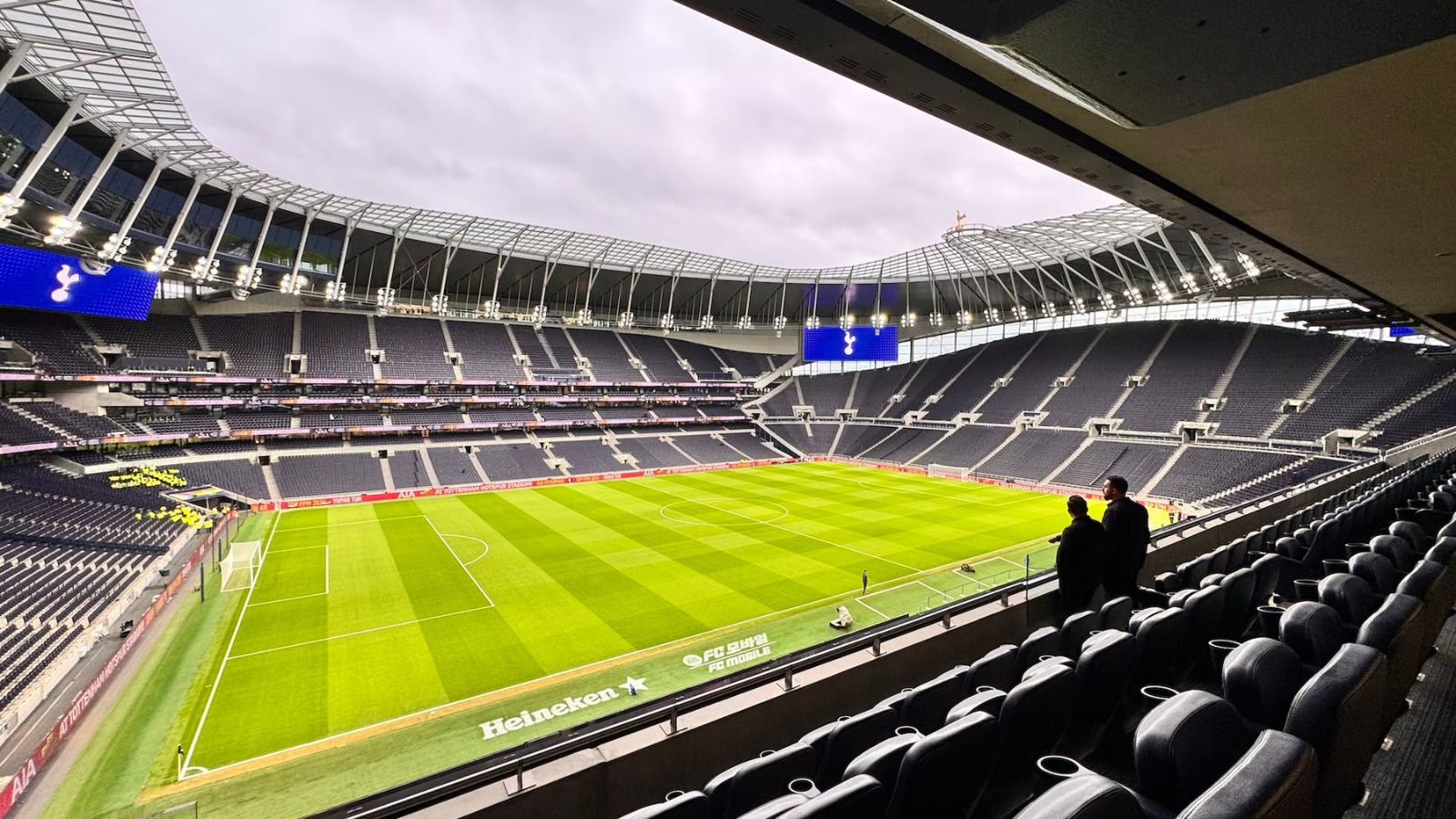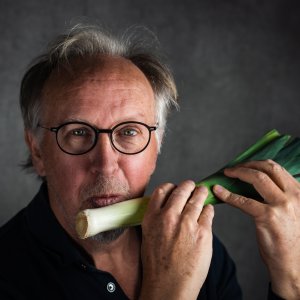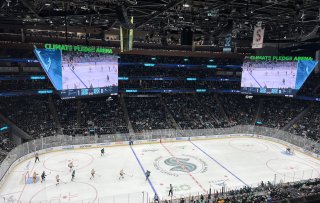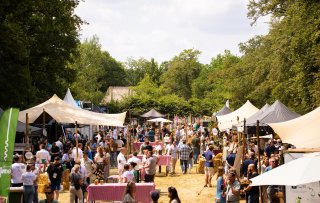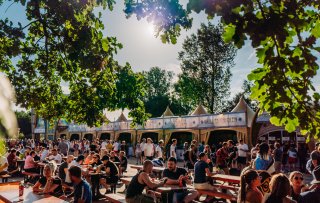Construction cost: over €1 billion. Capacity: 62,850. Hospitality crew at matches: 265 cooks and 1,500 service staff. Welcome to the superlative of stadiums: the Tottenham Hotspur Stadium in London. Not only an oasis of luxury, the stadium is well on its way to net-zero emissions.
Regional Executive Chef, Mark Reynolds, points to the granite floor on the first floor. “See all those pebbles and grit in the floor? Those are the remains of the old White Hart Lane stadium that have been given a place here.” Reynolds knows what soccer fans want. The executive chef of Levy – an independent arm of the world's largest catering company, Compass – has extensive experience organizing, developing, and managing food & beverage in soccer stadiums. Not only does he operate at London's Hotspur Stadium, the chef has also cooked at Arsenal Stadium and Wembley.
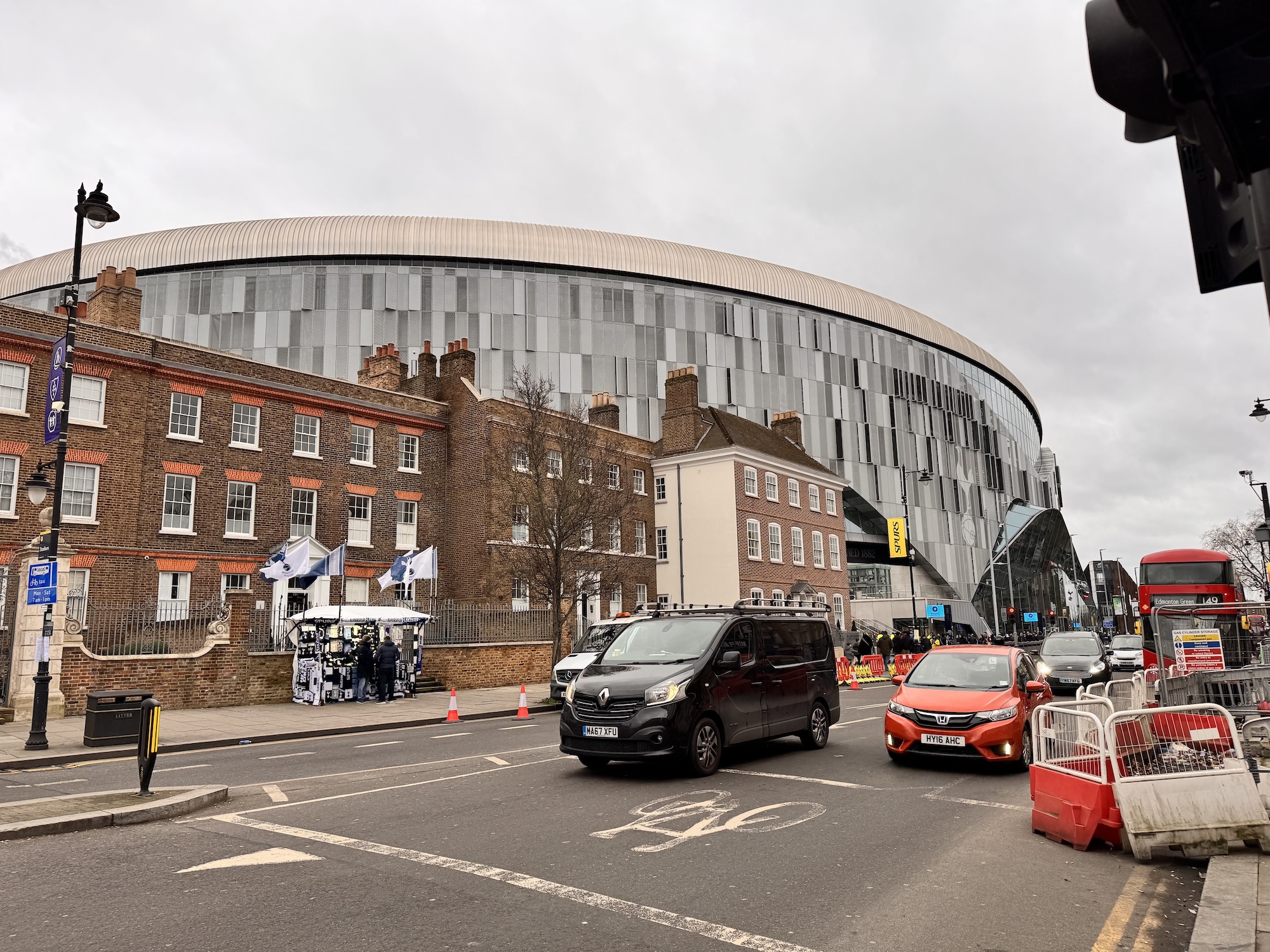
It's a busy day for Reynolds and his team. Today he is managing the sway of a kitchen crew of 265. A third of these cooks work in “retail catering,” British jargon for catering for the general public. The remaining cooks work in the stadium's many hospitality areas. Last year, the chef and his team won the award for best retail caterer in the premiership, the highest division of professional soccer in England. Reynolds talks about this with pride: “I find retail catering very interesting because it involves high volumes and high turnovers. It's not always easy to find chefs who find both fine dining and retail catering interesting. I try to get them to see that both sports are fascinating.”
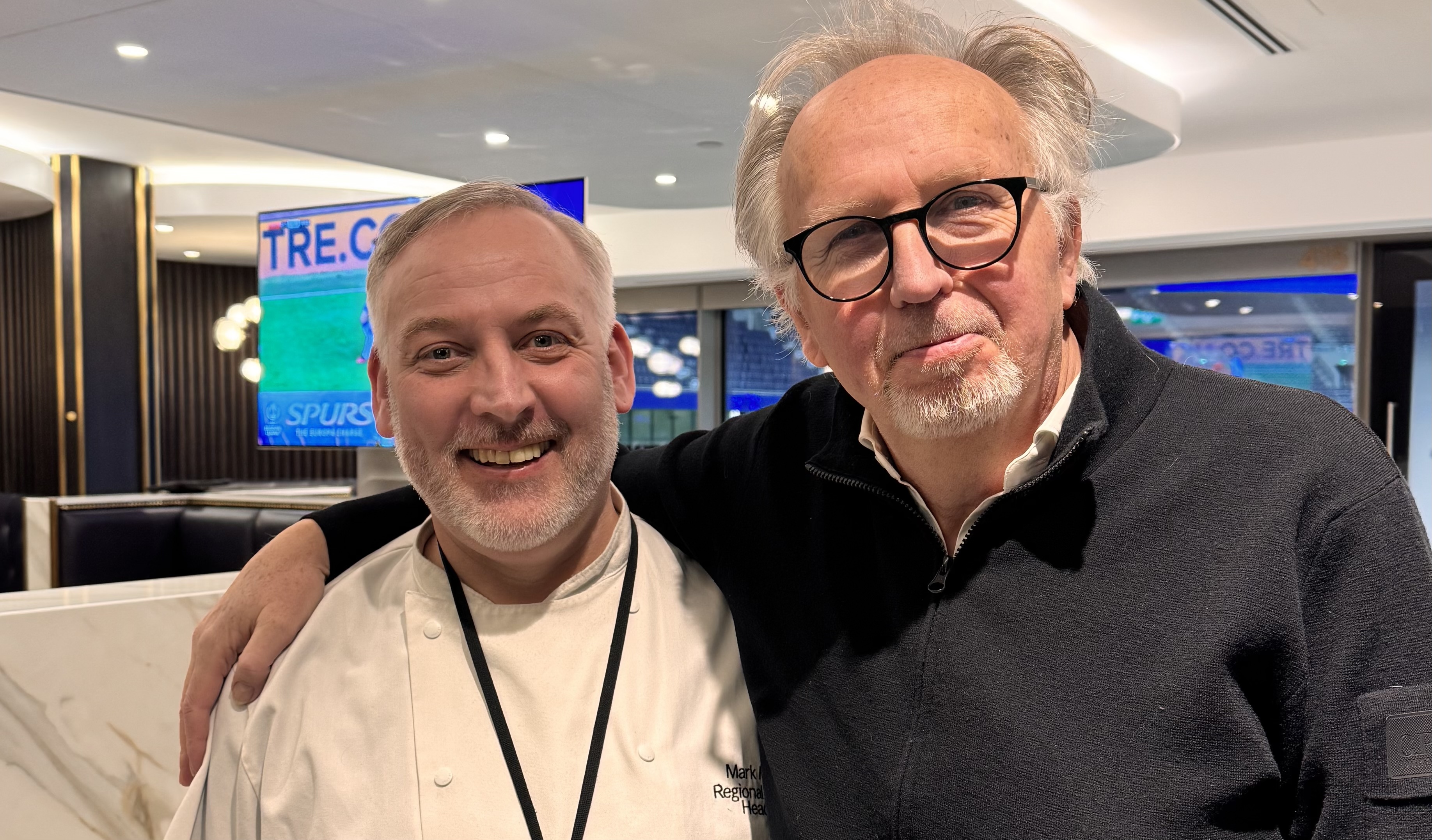
"The stadium is all about high volume as well as fine dining."
A 65-meter bar
Food Inspiration gets a tour just before the doors open to the general public. We first enter the space for the regular soccer fan, which has the longest bar in Europe: The Goal Line. It is 65 meters long with 65 taps and six types of beer. In addition to Heineken and Amstel – the Dutch brewer got the contract when the stadium opened in 2019 – beer is served from the only brewery in Europe to be located in a stadium: Beavertown. The local London brand was bought by Heineken and kept in honor at Spurs' Stadium: 90% of the beer Beavertown brews at the stadium is also drunk here. What remains is for pubs in London.
The chef takes us at a rapid pace through various food outlets in the “marketplace,” as this large public space in the stadium is called. He points out the bagel bar, a fish-and-chips outlet, and a grill concept with burgers. “Our burgers consist of 50 percent meat and 50 percent fermented vegetables. It gives a great taste and is good for the planet.” We stumble upon a pizza concept. “The dough comes from Italy. Yesterday we prepared the pizzas fresh, today they go into the oven.” There has also recently been a concept featuring K-food - meat with kimchi - popular with Spurs' many South Korean fans.
"Our burgers consist of 50 percent meat and 50 percent fermented vegetables"
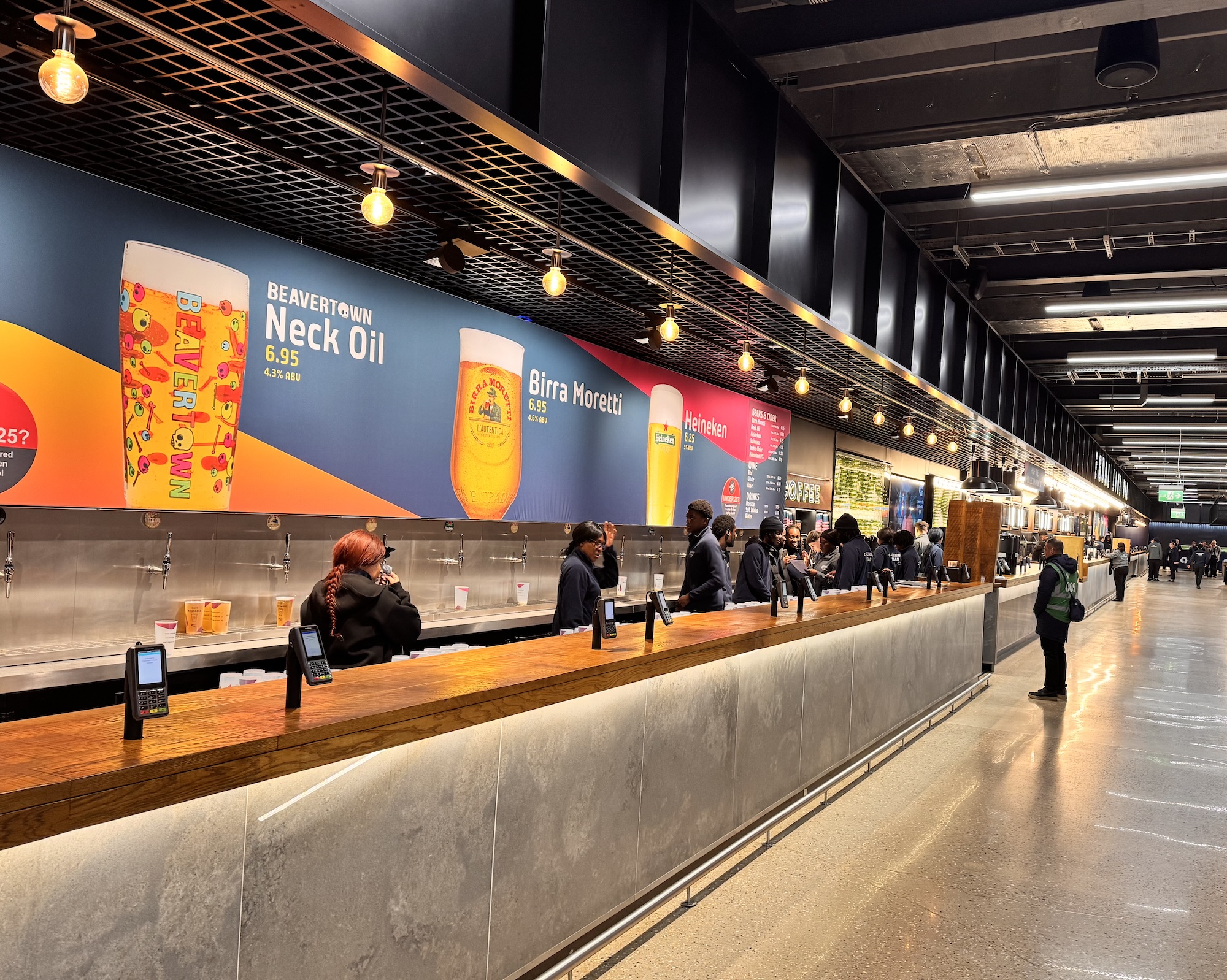
Fans and hospitality
For business fans, there are plenty of memberships to choose from. Just as for the ordinary fan, for these wealthy supporters, soccer is emotion. It's not about what a “membership” costs, it's about what it's worth to you. The chef points us to the TunnelClub, where you have to put down £20,000 a year just to be a member. A seat per game costs between £1,200 and £1,600. But then you also sit right behind the dugout where you can hear the manager's instructions. Guests are offered a four-course dinner each match with a choice of five starters, five mains and five desserts. After the game, the fourth course awaits: a traditional cheese platter. Something extra is also regularly done: today there is a champagne tasting at halftime and after the game, members can have their shoes polished. The TunnelClub is the most valuable membership and most guests are members on a personal basis.
Then we proceed to the elevators at the entrance to the restaurants and skyboxes. The elevator reaches as many as nine floors, several of which are used as office space. Corridors, floors, ceilings, walls: everything looks pico bello: a 20-man handyman team – including a team of painters – is on permanent duty and works every day to keep all areas fresh and tidy. There are different hospitality formulas on various floors, each offering different food and beverages. On the top floor is a trendy lounge club where, on this match day, guests are welcomed with a glass of bubbles and multiple culinary dishes. For these visitors, the soccer match can be followed from a dizzying height.
Star chef and sommelier
We descend to the fourth floor – the premium space ‘Loge on four’ – where a ticket costs between £600 and £1,000 per match. But then you get something special when you're here with your business associates. We take our seats at a beautifully set restaurant table where champagne is poured as a welcome drink by a sommelier who keeps an eye on us throughout the afternoon to make sure we don't lack anything. The four-course menu is cooked under the supervision of a Michelin-starred chef. The wine list features classic houses and all drinks are included in the package.
"The four-course menu is cooked under the supervision of a Michelin-starred chef"
Then the match begins and we make our way outside. A striking detail: the windows are tinted during the match so that no guest can look outside from inside and vice versa. The seat in the stands is electrically heated, which is a welcome luxury: the outside temperature is around four degrees, and it is windy and raining heavily today. We see Tottenham lose to Leicester, and for us Dutch visitors, it is nice to see our compatriot Ruud van Nistelrooy, coach of Leicester, finally win after numerous defeats.
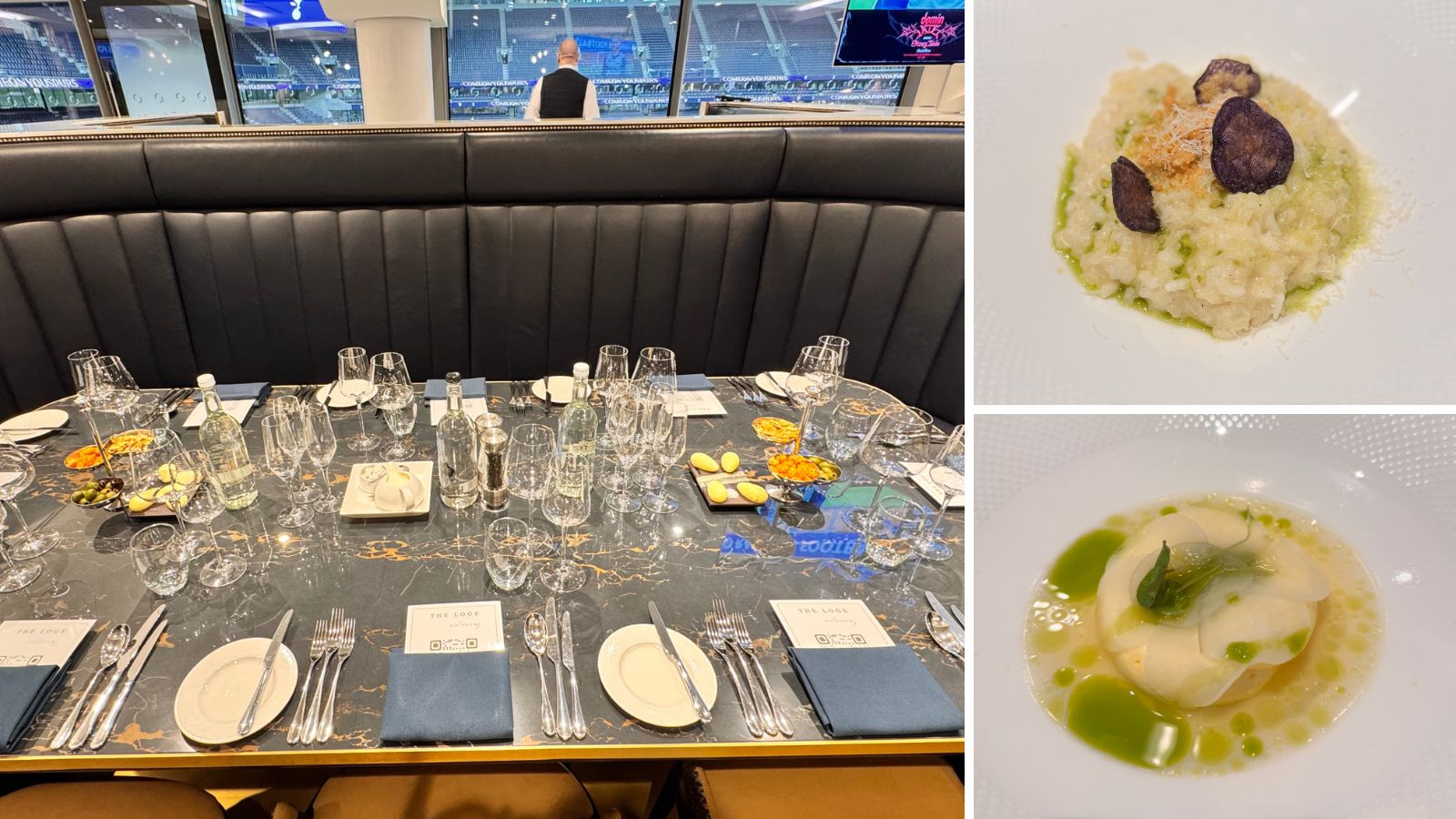
Growth in luxury hospitality
Frank Visser is Managing Director of Hospitality & VIP of Levy Europe and is responsible for Levy's growth in Europe: “We now have about 55 major events in this stadium every year: 33 soccer games, two American Football games and twenty concerts by major artists. Think Robbie Williams and Lady Gaga. We see that a group of guests is willing to spend more and more on excellent hospitality during live events. In this stadium, that means great hospitality, gourmet food and beverages, and personal attention. We take away the noise and stress you can experience at mass-attended events. We see the demand for it growing substantially.”
"Guests are willing to spend more and more on excellent hospitality"
Levy focuses exclusively on catering for stadiums, event venues, and conference venues. While Compass is known as a strongly rationally driven organization with contract catering as its biggest business model, caterer Levy is a brand with more adventure and rock 'n' roll in its DNA. Maarten van de Graaf, Head of Business Development at Levy: “Our distinction lies in our entrepreneurship and creativity. Compass gives us all the space we need to develop creatively and to lead the way. One of our qualities is developing a layered hospitality model for large venues. In this stadium, we have eight types of memberships, each with different food and hospitality offerings.”
Fanshop is department store
The stadium offers more than just food. We visit the official F1 Karting Experience where laps are driven adrift. The karting track was opened a year ago because there appeared to be excess parking space: most visitors to the stadium come by public transport instead of by car. The go-kart track is open daily and very popular.
And after the game we stop by Tottenham's fan shop. Its size can be compared to a department store. The South Korean player and captain, Soo, appears to be very popular. Shirts with Soo's name can be found in large quantities and in all shapes and sizes. During each match day, there are about 2,000 South Korean fans. They do not leave without a souvenir: on average, 1,000 shirts with his name on them are sold at a cost of £100 per shirt. Count your winnings. Soccer is emotion for the fans, for Tottenham it is also big business.
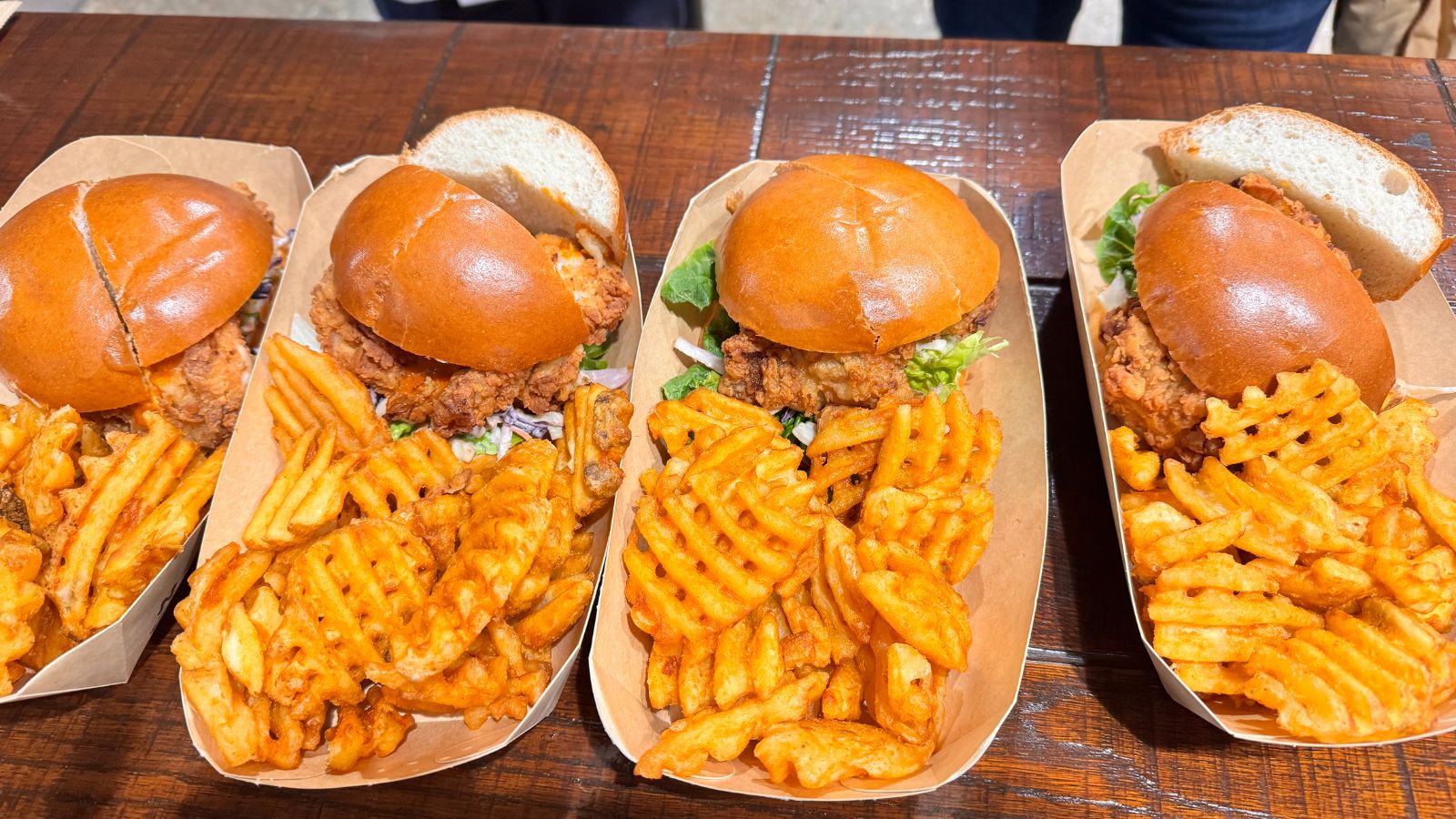
What strikes us?
On the plane back, associate Arjan de Boer and I take stock. This is what has stuck with us the most:
-
Levy's fine-tuned levels of 'membership.' Eight types of memberships are linked to specific locations in the stadium and have their own food & hospitality offerings; from a hip 'top-floor' to the ultra-luxurious 'TunnelClub.'
-
'Don't tell, just do it.' Sustainability is being put into practice. Menus are adapted and served attractively. To the visitor, one does not notice the great strides being made behind the scenes in sustainability. Hybrid burgers, chicken instead of beef, plant-based instead of animal-based dairy in desserts and on sandwiches, and reduction of plastic and packaging. There is no communication about being vegetarian, vegan, sustainable, carbon neutral or hybrid. Since here “supply determines demand,” guests automatically choose the sustainable option from what is offered.
-
Brewing in a stadium is also a smart solution. It saves quite a bit in distribution costs and the CO2 emissions involved. In terms of branding and storytelling, a brewery in the stadium is a godsend for marketers: you can't get any closer to your fans with your beer brand.
-
Sourcing is either local or national. Levy makes a strong statement that fresh produce should come from the United Kingdom. Cost does not come first, instead, national pride, sustainability, and sympathy for farmers are important key considerations.
-
The E-Kart track forms a special part of the stadium.
-
The price level of retail catering in the stadium is partly aligned with market prices outside the stadium.
-
Chicken is more popular than ever. In London, we see numerous chicken formulas growing. Chicken is also a hot item in the stadium, from chicken burgers to chicken popcorn.
-
Beer tap with underfill. You put a glass on the tap and it fills up from underneath. The system has been on the market for about ten years and widely used here. The system is labor extensive, provides precisely measured quantities, and is fun to watch too.
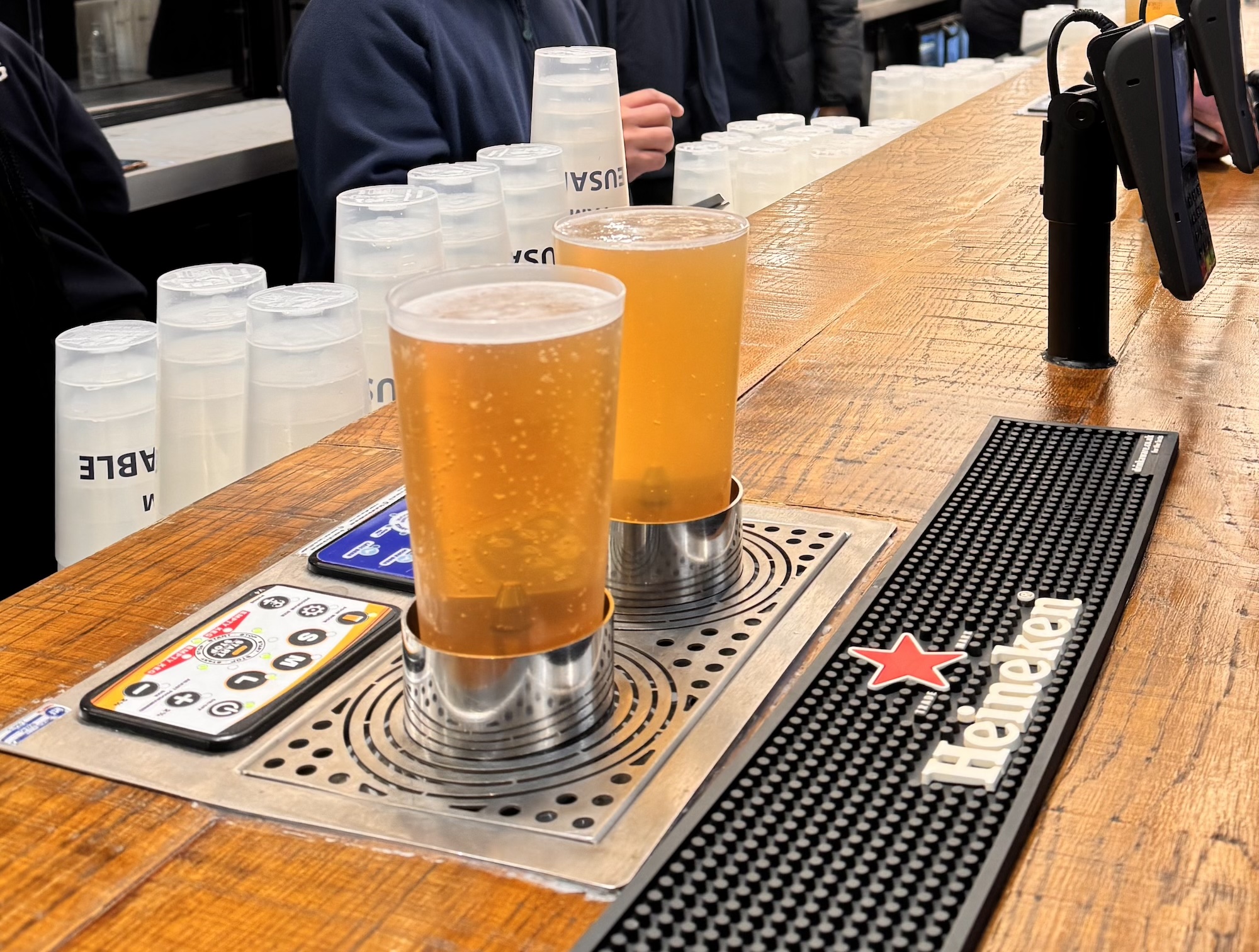
-
There are six different beers on tap. Remarkable is the wide selection and that Heineken is the “heaviest” beer in alcohol content;
-
Birra Moretti | £6,95 / 4.6%
-
Neck Oil | £6,95 / 4.3%
-
Heineken | £6,25 / 5%
-
Guinness | £6,95 / 4.1%
-
Inch Cider | £6,00 / 4.5%
-
Heineken 0.0 | £5,70 / 0.0%
-
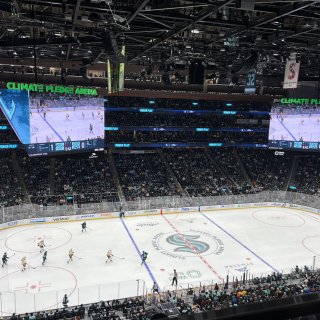
 Written by
Written by 